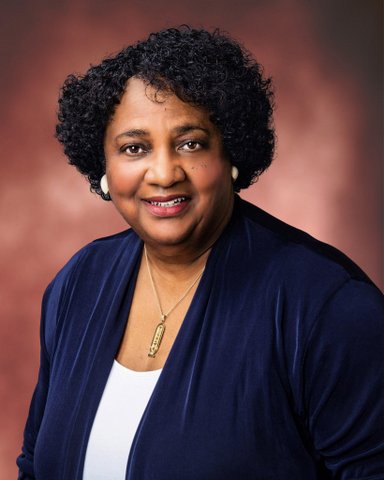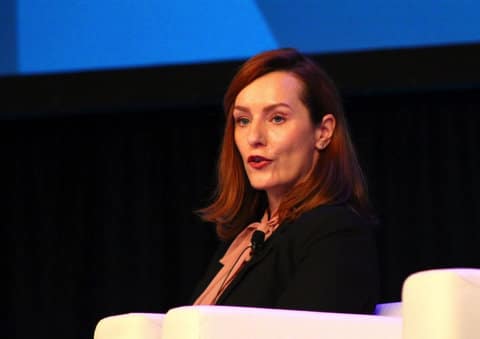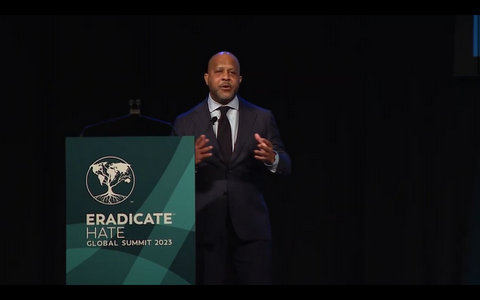
04 May Secretary of State Outlines How to Reduce Bigotry in Voting

By Joe Porrello
A variety of ways to reduce bigotry in voting were outlined in late March by California Secretary of State Shirley Weber at a community forum hosted by the California Civil Rights Department’s Commission on the State of Hate.
The commission’s goal is to lessen hate in California through things like the forum, using community input to construct appropriate responses to hate.
Weber worked in education for 40 years and is the first Black secretary of State in California. She is the fifth African American state constitutional officer since the state was founded.
She says that despite political fights and lives lost creating federal and state laws about voting, racism and discrimination persist in elections.
“I thought that was something that our parents had settled for us, that the Voting Rights Act of 1965 was a done deal, and it turns out it wasn’t,” she said.
The act was initially very effective, according to the Brennan Center For Justice. But it has since been stripped of some protections by the right-leaning U.S. Supreme Court.
While injustices and lack of inclusivity are not as explicit as in the past, they still exist, Weber says.
“I never thought that we would be back to this point in our lives,” she said. “We have come again talking about voting rights, voting opportunity, issues of hate and discrimination against everybody you could imagine, and the tremendous division that exists in this country right now.”
>>>Read: Attacks on Voting Rights Evoke Jim Crow Era
California remains inclusive, with voting services and laws that promote equality and motivate people to vote. “California has made it its task to try to remove every barrier that’s possible to people voting,” Weber said. “We have made registration so easy.”
She cited the state Motor Voter program, which automatically registers anyone procuring a license or identification card at the Department of Motor Vehicles.
Making vote-by-mail universal statewide has also helped make voting more accessible but has gotten political pushback in some counties, according to Weber.
“We find people that have always had the right to register to vote on a permanent basis by mail, don’t want poor folks to actually have the same opportunity,” she said. “The reality is, voting is power.”
Using the analogy of anti-literacy laws — which forbade Black people from reading and writing — Weber said that people in power are often afraid of enlightenment and voting becoming widespread.
“Those are the things that give you the same power as the person sitting next to you who has oppressed you, the same power that a man who owns a company has; he gets one vote and you get one vote,” she said.
Many non-voters are unaware that elections can change lives, according to Weber. Elected officials feel freer to do as they please if they have less opposition or community engagement.
“When you don’t vote, people don’t count you. They pretend this community of non-voters really don’t exist,” she said. “These are the things that are extremely important but that people don’t want everyone to know about.”
The way to get respect from elected officials is to hold them accountable via strong voting turnout, noted Weber.
Also, many people do not participate in elections because a single vote seems meaningless.
“People are just frustrated; they don’t think there’s anything that’s going to matter, they don’t connect themselves to those being put on the courts… to the laws being written. They see themselves only as one, rather than one and connected to others that are equally powerful.”
A low voter turnout also can hurt government institutions, Weber said, mentioning lost financial opportunities during her time on a school board.
Stories about voting legislation and election fraud that draw negative attention public are often untrue or do not apply to California. “Fortunately for us, we have a Legislature that’s not going to implement much of the things that people talk about — other states do.”
The secretary’s department includes the Office of Election Cybersecurity, which directly deals with fraud and misinformation, and it provides “trusted information” on a “rumor control page.”
“We’re constantly responding to some of that stuff on social media and making sure everybody knows what the truth is,” Weber said.
An example of modern-day voting barriers are Voter ID laws. They require a person to show a state-issued identification card before voting. Providing identification might not seem discriminatory, but it’s one of many implicit techniques that end up singling out minorities in the election process, she says.
One of Weber’s interns did a master’s thesis on Voter ID laws, she said, and found most who didn’t vote due to not having identification cards were Black or Latinx.
Despite state legislation, one California city still voted to require specific identification at its polling places.
Huntington Beach approved the measure enforcing Voter ID laws in March even though Weber advised not to put it on the ballot. She said at the forum that legal action would be taken against the city, and the state did sue the Southern California town last month. But even so, there will likely be more attempts.
“These things don’t go away, there will be someone else who comes up with another one, and another one, and another one,” said Weber.
When she was sworn into office in 2021, the secretary said she saw other election obstacles, including intimidation of poll workers that caused them to quit.
>>>Read: Native American Vote Has to Overcome Many Barriers
According to the California Voter Foundation, the number of state election officials dropped 15% between the November 2020 election and July 2021 due to threats, harassment, and stress.
And many local law enforcement agencies did not take instances of intimidation seriously, Weber says.
“We made clear to them that boys will not be boys in our registrar voting offices, that anyone who violates the law will be prosecuted to the maximum,” she said. “As a result, we’ve had very few incidents this election.”
Part of the state’s strategy is conducting training with police officers, city officials and poll workers to guide them in interpreting how they can proceed during elections — and what are prohibited actions by civilians.
“We continue to train them and help people to understand it because we want them to know that this is not a place that you come to demonstrate your feelings; you can’t do it around the perimeters, and you can’t block polling places,” Weber said.
The secretary noted she still gets threatened with what she called “love letters,” including ones telling her how the upcoming elections will be challenged.
“We will be prepared. We’ve said to them on no uncertain terms that no one will be intimidated,” she said. “People who work here will not find themselves in peril because these folks are pushing them.”
In comparison with the 1960s in terms of hate, Weber says the same amount of civic engagement needs to occur today to limit voting discrimination. With this in mind, she and her colleagues are recreating the 1964 “Freedom Summer,” which included educating people on voting and getting them registered.
“This is going to be Freedom Summer No. 2 in California,” she said.
Her hope is that it puts passion back into voting through knowledge of sacrifice for voting privileges — and takes away some of the apathy associated with elections.
This resource is supported in whole or in part by funding provided by the State of California, administered by the California State Library in partnership with the California Department of Social Services and the California Commission on Asian and Pacific Islander American Affairs as part of the Stop the Hate program. To report a hate incident or hate crime and get support, go to CA vs Hate.





No Comments